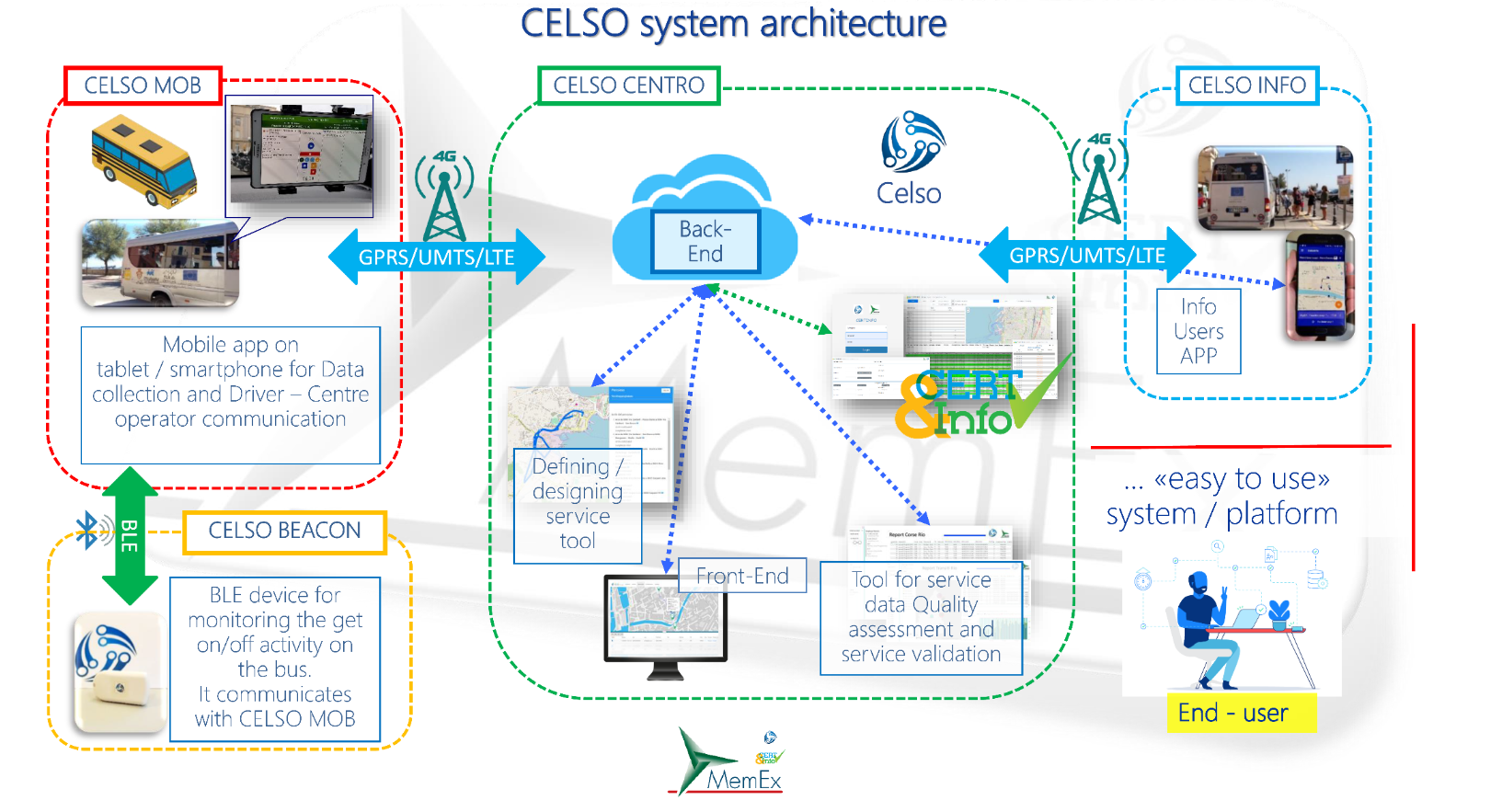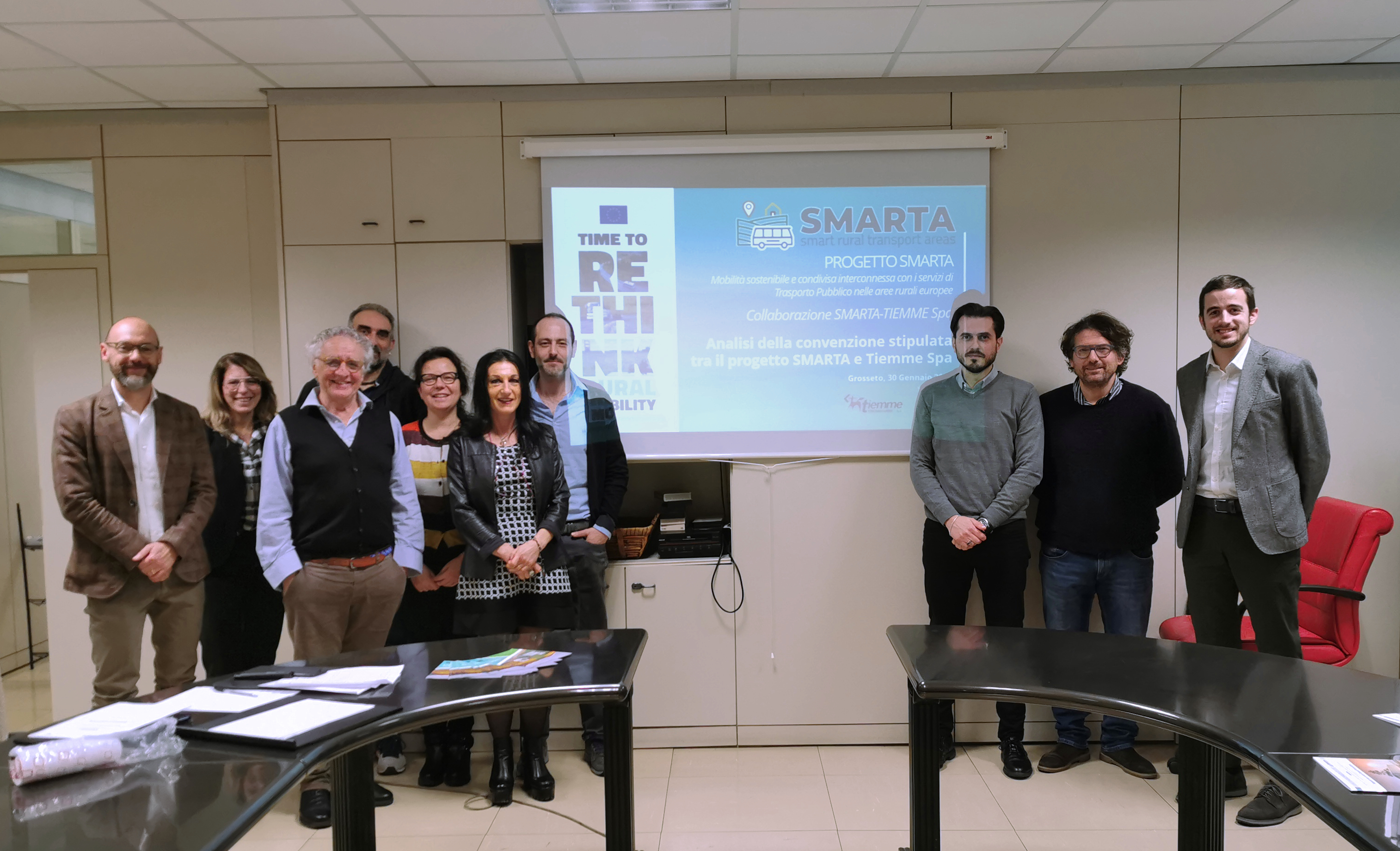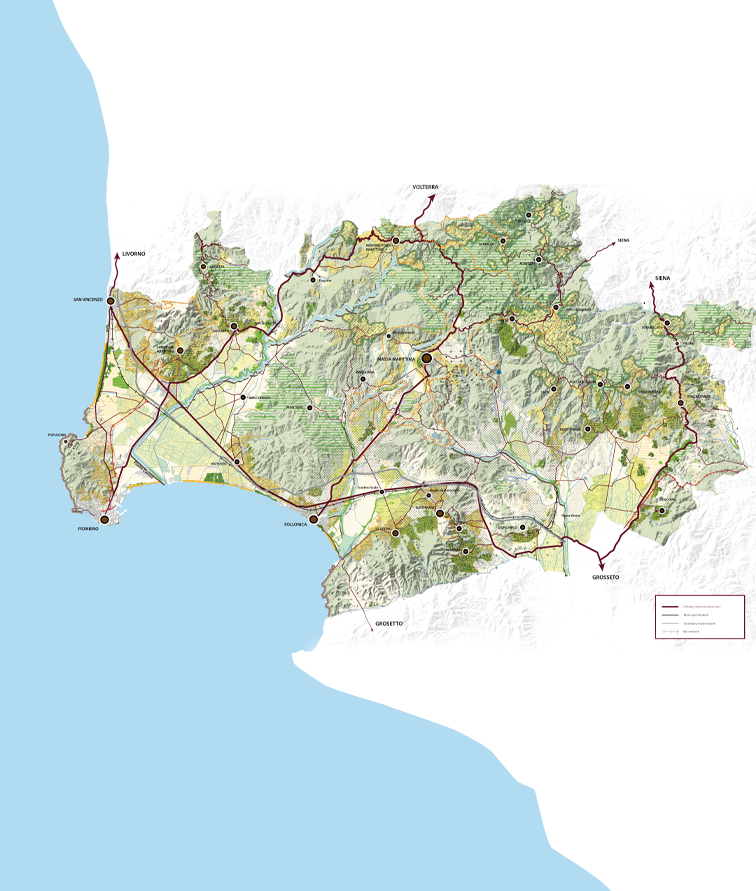
Toscana Sud
Shared mobility services
Italy
The pilot site is indicated as “Toscana Southâ€. The pilot activities involve, with different efforts, rural areas of the Municipalities of Massa Marittima, (~ 8500 inhab.), Civitella Paganico (~3200 inhab.), Monterotondo (~1400 inhab.), Montieri (~1200 inhab.), Piombino area (~25000 inhab.) and Campiglia Marittima (~12 815 inhab.)
The transport services operated in these areas consist of:
- School bus transport service “A porte aperte†of Piombino Municipality;
- The conventional bus and rail services operating in the rural areas mentioned above;
- Other school transport service operating in southern Tuscany;
- The ridesharing services operated in the areas of the pilot site.
Objectives
The ‘Toscana sud’ pilot site has different objectives: firstly, it aims to analyse the different “school bus†and shared mobility services operating in target rural areas, focusing on the differences between service contract types, organizational frameworks, role and responsibilities of different actors involved and level of integration with the conventional public transport.
Secondly, it aims to implement and manage the CELSO system, for the service quality and performance control and assessment. The pilot will also have a special focus on the supporting technologies, evaluating the ITS scenario realised in TIEMME (Ticketing AVM fleet control, user information (web/on road), APP, tactical table tools, travel planner, etc.) with respect to the Delegated Regulation 2017/1926. Finally, the pilot aims to identify possible policy directions for rural mobility both at the local level and regional one with the support of the other Entities and Institutions involved.
Description of actions
The activities of the ‘Toscana sud’ pilot site consiste of the following:
- Analysis of the main characteristics of the different transport services and schemes operated in the pilot areas
- Implementation of Celso tool for school service data collection, monitoring and reporting in four pilot areas. Analysis of the impacts on the different target users (operators, bus drivers, students, authority)
- Evaluation of CELSO system with respect the existing AVM system operated by TIEMME for the conventional services
- Evaluation of the contribution of ITS scenario realised in TIEMME with respect the Delegated Regulation 2017/1926 on the provision of EU-wide Multimodal Travel Information Services, related to the ITS Directive 2010/40/EU
- Organisation of two workshops on shared mobility services in rural areas with engagement of relevant Authorities
- Contribution to the improvement of the mobility policies adopted for rural areas in Tuscany and identification of intervention strategies.


